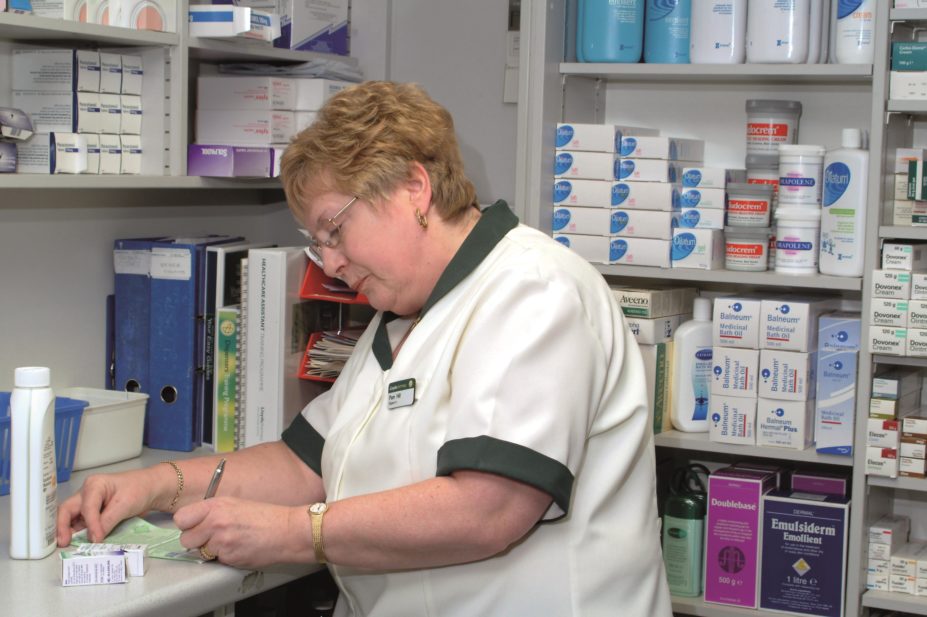
Peter Titmuss / Alamy Stock Photo
Community pharmacists should be given read and write access to the health records of palliative care patients to reduce delays in receiving medicines, according to the Royal Pharmaceutical Society (RPS) Scotland.
Responding to the Scottish Parliament’s Health and Sport Committee Inquiry into palliative care, the Society says the lack of pharmacist access to these records also poses a “significant risk” to patient safety. It calls for community pharmacists to be allowed access when a patient expressly consents.
“We want [the committee] to have a clear understanding of the important role pharmacists play in palliative care, and to recognise the potential to use their clinical skills to contribute more to patient care,” says Aileen Bryson, practice and policy lead for RPS Scotland.
“Pharmacists from all sectors of the profession strive to provide the best pharmaceutical care possible, however there are some challenges that need to be addressed, particularly around controlled drugs, and these are highlighted in our evidence submission.”
Timely access to palliative care medicines is critical to prevent and relieve suffering, the RPS says in its response. Understanding prescribers’ intentions is important in light of the legal, ethical and patient safety issues in dispensing these high-risk medicines.
Yet, community pharmacists are not routinely informed when a patient is receiving palliative care and, without access to their records, often have no accurate diagnosis from which to identify palliative care and urgent prescriptions.
When advice or supply is sought from a pharmacy in the Community Pharmacy Palliative Care Network, neither do these pharmacies have access to a patient’s medication history, which is “crucial” to managing the risk of adverse drug reactions and preventing serious overdoses, the Society says.
Problems identifying prescriptions also make sensitive conversations with families and carers more difficult and can frustrate patients, who often expect the pharmacist to have access to their record.
Controlled drug delays
The submission also argues that with write access, pharmacists could record their input to a patient’s care, such as chronic medication service interventions, which would improve continuity of care.
RPS Scotland also calls for prescribers to receive better education and training about the Home Office requirements for controlled drug prescriptions, to avoid what the Society says can be “unnecessary delays” in access to medicines. Errors in prescriptions for controlled drugs to be dispensed in community pharmacies place pharmacists in a legal and ethical dilemma, as they are forced to weigh up the need to dispense urgently required medicines in a timely fashion with staying within the law.
Better coordination of local GP practices, community pharmacies and care homes would improve palliative pharmaceutical care for care home residents, it adds.
The RPS response includes expert input from members of the Society working as specialists in palliative care and related therapeutic areas, as well as community generalists with a special interest in palliative care in primary care.
Following the submission of written evidence, the inquiry, ‘We need to talk about palliative care’, will take oral evidence from nursing and hospice organisations in September 2015.

